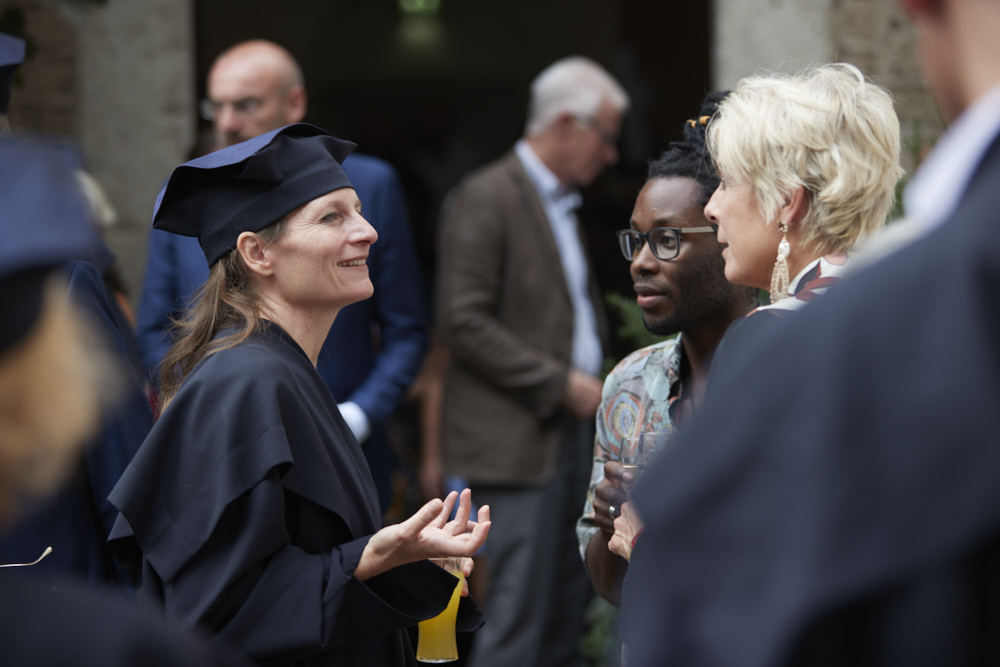Humanist Chaplaincy Studies
The department’s research and teaching focus on existential and moral guidance in spiritual care and related fields, such as social work and psychological counselling. Researchers are active in a wide range of fields, including healthcare, justice, defence and policing. The group also studies meaning making in a societal context.
Meaning – the pursuit of it and also its loss – is a subject of great interest. We are talking about the question of how to live (well), or the question of a meaningful existence. It is a classic field of research for philosophy and (existential and humanistic) psychology. More recently, it has also been studied empirically, for example in care and counselling practices.
The department employs researchers from various disciplinary backgrounds, such as psychology, philosophy, anthropology, humanistics and methodology. Their methodological expertise is also diverse: they have expertise in narrative and other forms of qualitative research, ethnographic research, action research and questionnaire research, among other things.
Together with practitioners, the group develops new insights into meaning and spiritual care and investigates their value for individuals, groups and organisations. They collaborate with other professional groups and clients to meet the diverse existential, spiritual and moral needs of people in a rapidly changing world.
Chair
prof. dr. Gaby Jacobs, professor of Humanist Chaplaincy
Professors
- prof. dr. Arjan Braam, professor by special appointment of Psychiatry and Philosophy
- prof. dr. Geert Smid, professor by special appointment of Psychotrauma, Loss and Grief
Assistant professors / researchers
- dr. Mienke van der Brug, assistant professor of Research Methods
- dr. Annemiek Schilpzand, assistant professor
- dr. Carmen Schuhmann, associate professor Spiritual Counselling
- dr. Wander van der Vaart, associate professor of Methodology
- dr. Laura Vermeulen, assistant professor
- dr. Joanna Wojtkowiak, assistant professor of Psychological and philosophical aspects of existential counselling
Practical teaching staff
- Bianca Lugten, lecturer in Reflection Skills
- Jantine Maaskant, lecturer in Conversational Skills
- Marco Otten, Theme leader Professional Skills, lecturer Education
PhD candidates
External PhD candidates
- Lotte van Elp
- Brechtje Hallo
- Sterre Hoenderop
- Carla Kolner
- Karin de Lange
- Carina Stigter
- Michiel Westra


